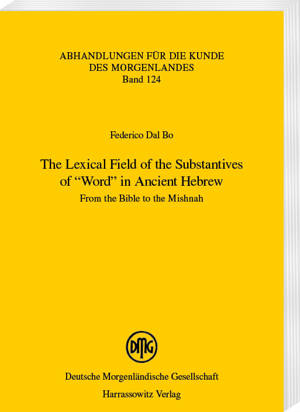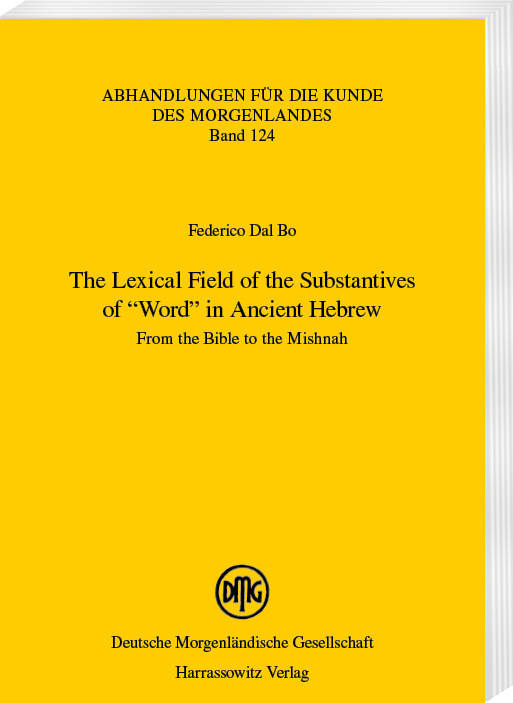
- Retrait gratuit dans votre magasin Club
- 7.000.000 titres dans notre catalogue
- Payer en toute sécurité
- Toujours un magasin près de chez vous
- Retrait gratuit dans votre magasin Club
- 7.000.0000 titres dans notre catalogue
- Payer en toute sécurité
- Toujours un magasin près de chez vous
The Lexical Field of the Substantives of 'Word' in Ancient Hebrew
From the Bible to the Mishnah
Federico Dal Bo
139,45 €
+ 278 points
Description
Jewish Monotheism is built on a fundamental assumption: God has spoken to the Jews and commanded them to follow His law. But what exactly are - "God's words"? This monograph examines the notion of "word" in Ancient Judaism from the Bible to the Mishnah - from Scripture to this prominent Hebrew law handbook redacted at the beginning of 3rd century c.e. It explores the notion of human and divine "word" and its transformation in the narrative, legal, poetical, and theological pieces of Jewish literature. It pays particular attention to the semantic evolutions of all those substantives that designate a "word" or any other relevant element of speech that both humans and God use to communicate with each other. The monograph offers an analysis of the word field of the substantives of "word" from a double perspective - a linguistic and a cultural one. On the one hand it relies on Eugenio Coseriu's semantics and on the disseminated notion of "Hebrew functional languages." It starts from the presupposition that every term has its own meaning only due to its connection with other terms - called "lexical field." It also argues that Hebrew can be divided into several "functional languages" that have different social and communicative functions: a narrative, legal, poetical, and performative one. On the other hand, the monograph also takes into account the reception history of Scripture through its main ancient translations into Greek, Aramaic, and Syriac. In doing so, the monograph examines the word field of the substantives of "word" also from a cultural perspective and shows the evolution of this fundamental portion of Jewish literature.
Spécifications
Parties prenantes
- Auteur(s) :
- Editeur:
Contenu
- Nombre de pages :
- 278
- Langue:
- Anglais
- Collection :
- Tome:
- n° 124
Caractéristiques
- EAN:
- 9783447116527
- Date de parution :
- 25-08-21
- Format:
- Livre broché
- Format numérique:
- Trade paperback (VS)
- Dimensions :
- 155 mm x 22 mm
- Poids :
- 4436 g

Les avis
Nous publions uniquement les avis qui respectent les conditions requises. Consultez nos conditions pour les avis.






